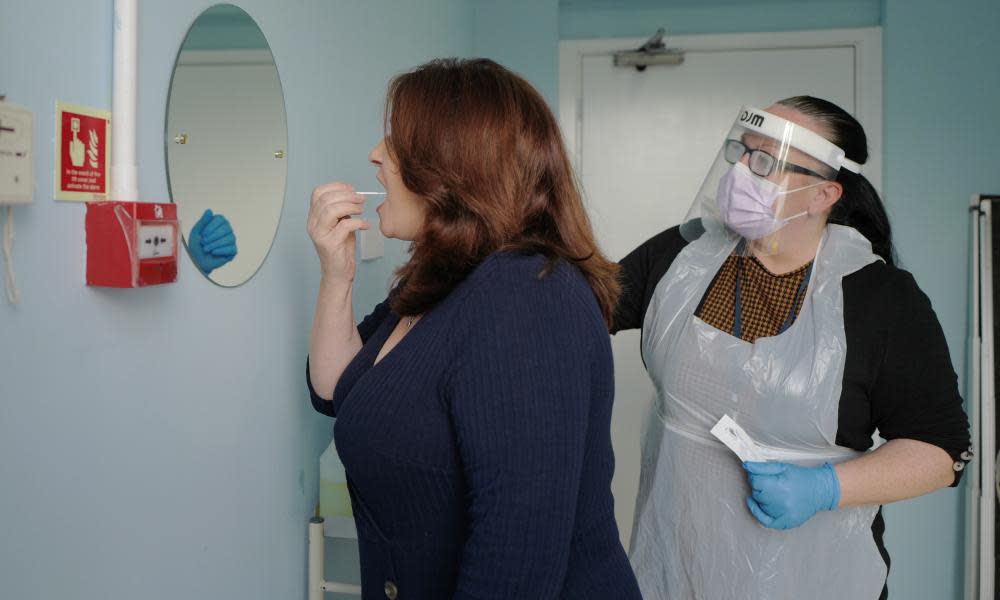Hugging to resume in England's care homes with rapid Covid tests

Hugging is to resume in England’s care homes with the rollout of rapid testing for visitors from Wednesday but care operators are warning that not all will get a visit before Christmas and protective equipment will still be essential to keep the risk of infection down.
Last week, Prof Chris Whitty, the chief medical officer, said he would not encourage anyone to hug or kiss elderly relatives, but guidance issued on Tuesday by the Department of Health and Social Care declared hugs could happen. Enough lateral flow test kits will now be sent out to more than 15,000 care homes so that up to two relatives should be able to visit twice a week by Christmas. Care homes have been told that indoor visits should be enabled regardless of tier and that visitors will be allowed to bring a wipeable gift, such as chocolates.
“If a visitor has a negative test, is wearing appropriate PPE, and following other infection control measures then it may be possible for visitors to have physical contact with their loved one, such as providing personal care, holding hands and a hug,” the guidance states. It cautions that “contact should be limited to reduce the risk of transmission which will generally be increased by very close contact”.
Visits will not be allowed in care homes with outbreaks, apart from at the end of life.
“Covid-19 is a cruel virus that has torn families apart and denied so many the simple human pleasure of contact with a loved one,” said Helen Whately, the care minister. “It is impossible to eliminate risk entirely, but now … we can help to more safely reunite families throughout December.”
default
The policy was welcomed by the charity Age UK as a “significant shift” in the government’s stance. But it said delivering so many tests before Christmas was ambitious and many could be disappointed. HC-One, the largest chain of private care homes, said it had received tests for 18 of its 329 homes and MHA, the largest charitable provider, has received none. The government said tests have so far gone out to the 385 biggest care homes.
Adam Purcell, who runs a small care home in Lancashire, has spent £2,500 on 100 private tests to avoid disappointment for his 16 residents if government tests do not arrive.
“Come Monday, they will be sitting up close together, holding hands and having a hug,” he said. “I am welling up thinking about it. I can’t wait.”
The new policy comes despite concerns from health chiefs in Sheffield and Liverpool over the effectiveness of the rapid tests.
Sheffield council has told care homes in its area not to use them, while Liverpool has delayed the start of its programme, the Guardian revealed on Monday. Liverpool council will insist visitors undergo two tests 24 hours apart.
Care England, which represents the largest care home providers, also warned relatives on Tuesday “it will be a while until [testing] is entrenched”. .
The rollout follows a two-week trial in 20 care homes in the south of England, including at the Meadway care home in Winchester.
Martin Green, Care England’s chief executive, said the logistical challenge of delivering testing kits to so many homes and with individual care homes deciding that even testing will not sufficiently mitigate infection risk, it means the Christmas target is unlikely to be met.
Care homes have called for extra funding to pay for the staff to carry out the tests, cleaning and visit administration, with the National Care Forum saying the cost could exceed £30m a month nationwide. But no new cash has been offered, with care homes instead urged to apply to councils for money under the existing £1.1bn infection control fund.
Working age residents will also be able to join their families in their homes subject to an individual risk assessment, a negative test before leaving and a period of self-isolation upon return.

 Yahoo Movies
Yahoo Movies 
